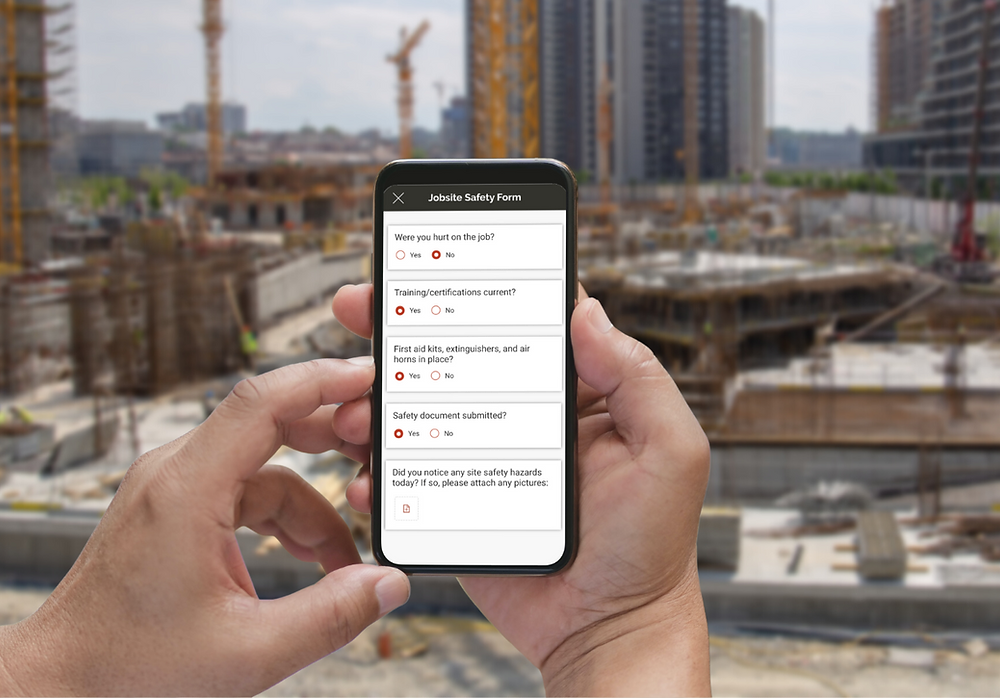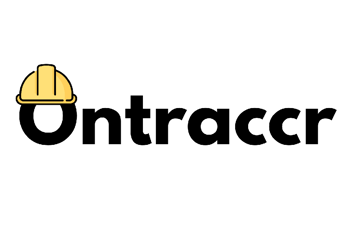In the fast-paced and ever-evolving world of construction management, efficiency, accuracy, and streamlined operations are paramount for success. With advancements in technology, construction contractors have a multitude of project management software options.
Among them, Ontraccr stands out as a game-changer in the industry. Offering a highly customizable construction workflow automation software, Ontraccr empowers contractors to revolutionize project management, streamline time tracking, and optimize their operational processes.
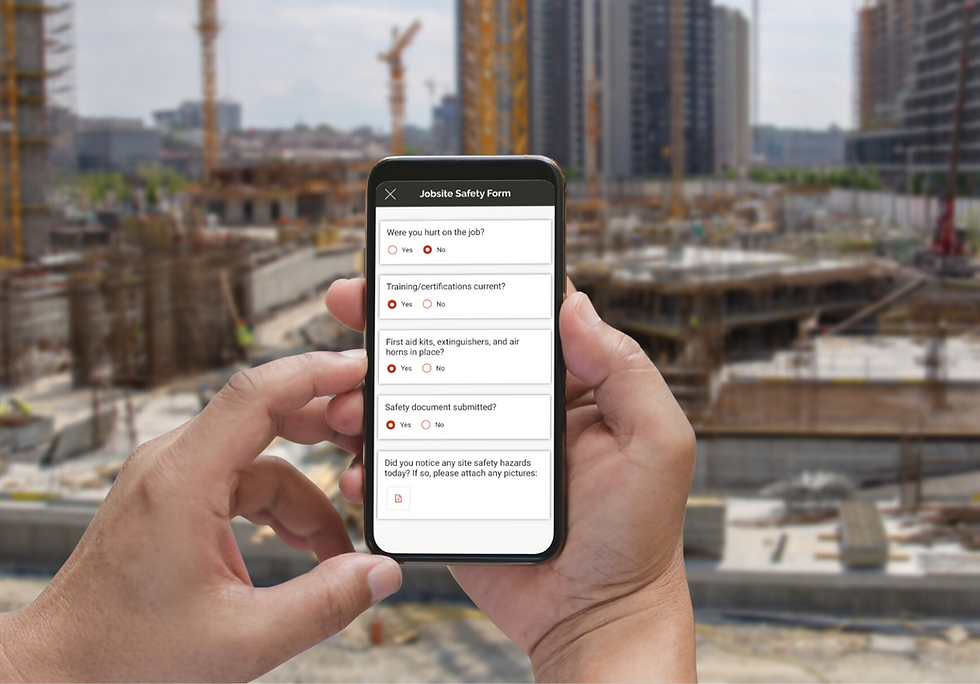
In this blog post, we will explore the transformative capabilities of Ontraccr and how it addresses the challenges of traditional project management software, delivering exceptional benefits to contractors and compare them to the drawbacks of traditional software in the market.
Cons of Traditional Construction Management Software
1. Limited Data Consolidation
Traditional project management software may suffer from limited data consolidation capabilities, leading to information silos and hindered decision-making. Without unified data, contractors may struggle to access real-time insights into project progress, expenses, and labor costs, affecting overall project efficiency and profitability.
2. Complex User Interfaces
Traditional software may feature complex and rigid user interfaces that are challenging for non-technical team members to navigate. This complexity results in underutilization of the software's capabilities, reduced collaboration, and diminished productivity.

3. Manual Workloads and Errors
Many traditional project management solutions rely heavily on manual data entry, leading to time-consuming tasks and potential errors in reports and financial data. Manual workloads impede efficiency and introduce risks that could impact project outcomes.
4. Limited Customization
Traditional software may lack the flexibility and customization options that construction companies require to meet diverse compliance standards and client-specific needs. Contractors may find it difficult to tailor reporting and workflows, limiting their ability to deliver personalized services and meet industry regulations.
5. Lack of Scalability
As construction companies expand, they may outgrow traditional project management software that lacks scalability. Limited scalability may lead to software constraints, increased administrative overhead, and challenges in accommodating growing project demands.
How Ontraccr is Revolutionizing Construction Workflow Management
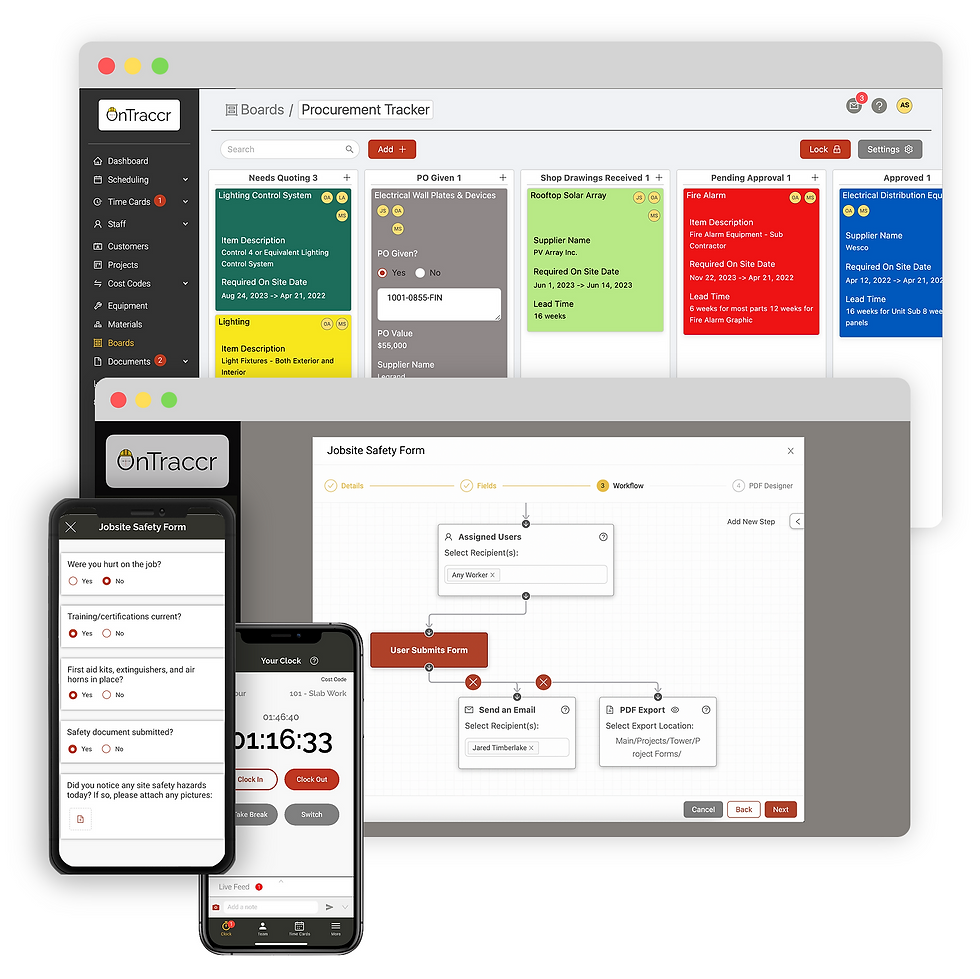
1. Comprehensive Data Consolidation
One of the most significant advantages of Ontraccr is its ability to consolidate tracking data into a unified platform. Unlike traditional project management software that often relies on disparate systems, Ontraccr integrates various aspects of project management, including time tracking, documents, budgets, invoicing, inventory, equipment tracking, service management, CRM, scheduling, and much more.
This comprehensive data consolidation provides unparalleled visibility into project progress, labor costs, expenses, and overall business performance. Decision-makers can access real-time insights, make informed choices, and optimize processes for better outcomes.
Ontraccr's platform acts as a centralized hub where contractors can effortlessly access crucial information related to their projects. From tracking project timelines and budgets to monitoring resource allocation, all essential data is readily available on the platform's customizable dashboards.
This level of data consolidation empowers contractors to stay on top of their projects, quickly identify potential bottlenecks, and make proactive decisions to ensure project success.
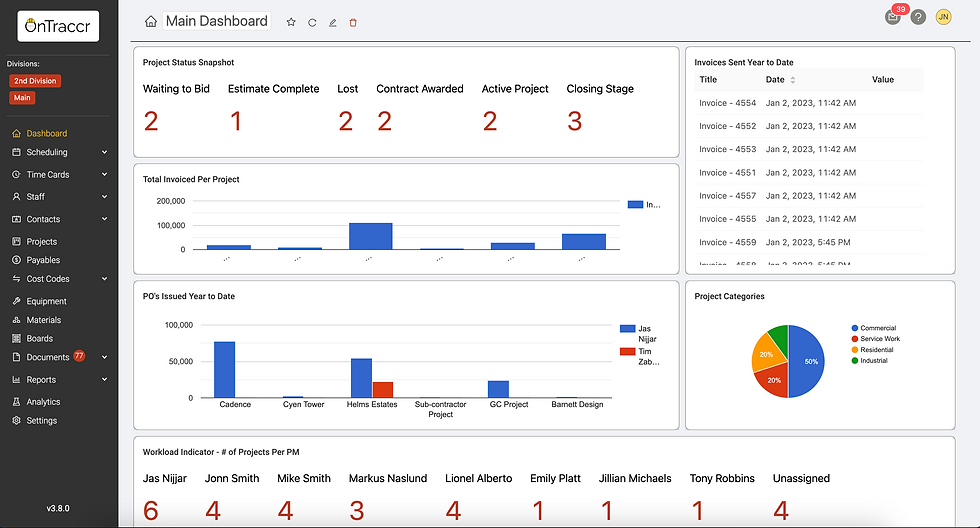
2. User-Friendly Configurability
Ontraccr boasts an intuitive and user-friendly interface, making it accessible to both technical and non-technical team members within construction companies.
Contractors can easily customize the platform to suit their specific workflows, reporting requirements, and unique project needs. The platform's flexibility ensures that contractors can mold Ontraccr to align with their existing processes, rather than having to adapt their workflows to fit the software.

For instance, Ontraccr offers fully customizable time tracking workflows, allowing contractors to track employee time in a variety of different ways. This flexibility greatly reduces the learning curve for employees, as they can continue to track their time and report on progress in any manner suitable for them.
Moreover, Ontraccr's robust roles and permissions enable contractors to tailor user access levels and editing privileges, ensuring that sensitive data remains secure. This level of configurability is just one example and Ontraccr extends these benefits throughout the different features that it has to offer.
3. Empowering Automation
Automation is a critical aspect of Ontraccr's offering, significantly reducing manual workloads for construction companies. Time-consuming tasks such as time tracking, data entry, budget updates, document generation, and report generation are automated, saving valuable time and minimizing the risk of errors.
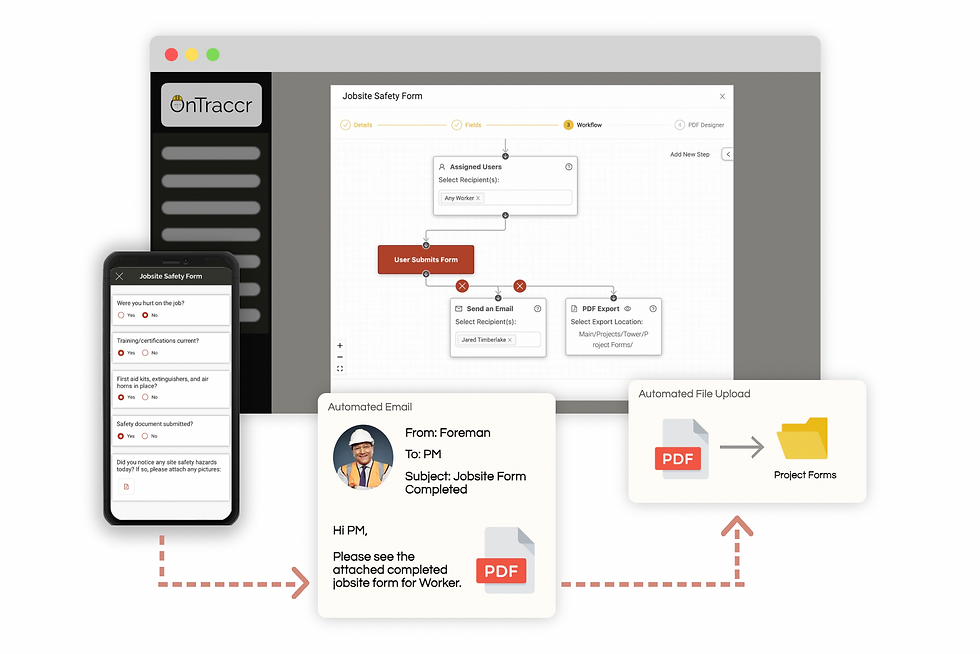
Ontraccr's automation features allow contractors to streamline workflows, improve overall efficiency, and focus on critical aspects of their projects.
Ontraccr's powerful automation capabilities extend to various aspects of project management. For instance, contractors can automate the generation of custom documents and workflows, reducing administrative overhead and ensuring consistency in document formats. The platform's automation also extends to time tracking, where contractors can define rules for overtime, union regulations, time rounding, and auto-break settings.
This automation ensures that contractors accurately capture employee hours, reducing the burden of manual time tracking and preventing discrepancies in payroll processing.
4. Customization for Compliance and Client-Specific Needs
Ontraccr excels in assisting contractors with regulatory compliance and meeting client-specific requirements. The platform's customizable data collection and reporting options ensure adherence to industry regulations and allow for the delivery of personalized services to clients.
Contractors can create custom templates for different projects and clients, facilitating seamless compliance and personalized experiences. For example, contractors working on government-funded projects may have specific compliance requirements. Ontraccr allows them to design custom reporting templates that capture the necessary information for regulatory audits and financial reporting.
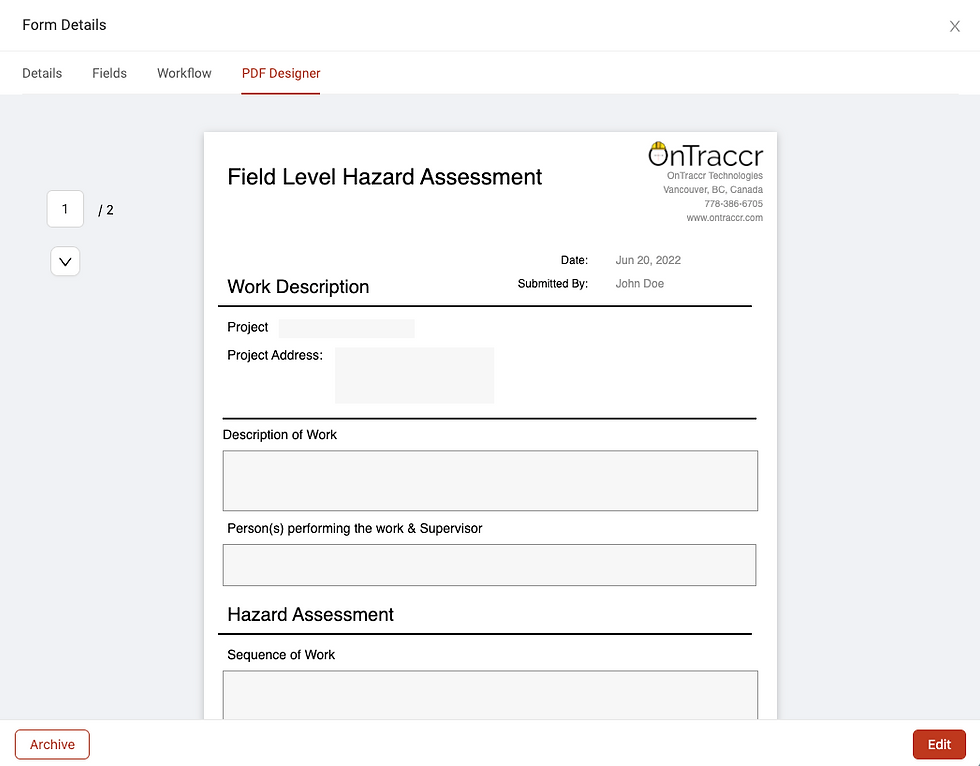
Similarly, for clients with unique invoicing preferences, contractors can create tailored invoices that meet the client's specifications, enhancing client satisfaction and streamlining billing processes.
5. Scalability for Growing Businesses
As construction companies grow and expand their operations, they need a project management software that can scale to accommodate evolving needs.
Ontraccr's platform is designed with scalability in mind, ensuring it can grow with the demands of construction businesses. Contractors can seamlessly manage larger and more complex projects, allocate resources efficiently, and ensure streamlined operations at every stage of their growth journey. Ontraccr's scalable architecture supports construction companies' continued success and growth.
Ontraccr's scalability enables contractors to expand their business without the burden of transitioning to a new project management solution. As the number of projects and team members increases, Ontraccr continues to deliver a seamless and efficient user experience.
This scalability is achieved through Ontraccr's cloud-based infrastructure, which ensures that the platform remains adaptable and capable of meeting the evolving needs of construction companies.
Conclusion
Ontraccr's customizable construction workflow automation software is a transformative tool for construction contractors of all types.
With its comprehensive data consolidation, user-friendly configurability, empowering automation, customization options, and scalability, Ontraccr redefines project management in the construction industry. By addressing the limitations of traditional project management software, Ontraccr empowers contractors to achieve unprecedented efficiency and productivity.



